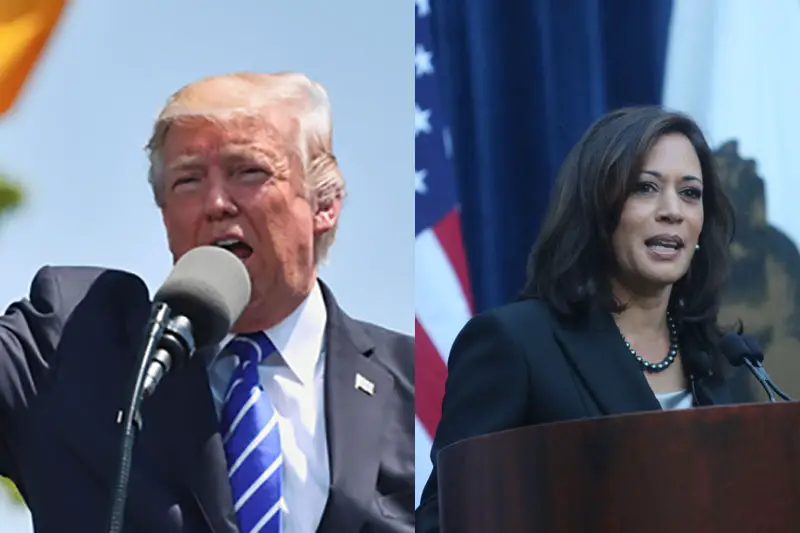In a recent episode of “The Joe Rogan Experience,” Joe Rogan, the prominent podcaster, stirred up political discourse by suggesting that Vice President Kamala Harris might have a chance at winning the next presidential election against former President Donald Trump. This statement has incited considerable debate and has shed light on the potential dynamics of the 2024 race.
During this episode, Rogan was joined by cultural commentator Michael Malice for an open conversation about the presidential election and Harris’ potential to win. Rogan stated, “She’s gonna win,” which was met with Malice’s surprised response, “No, she’s not.” Rogan further clarified his position by saying, “I’m not saying because I think she’s going to, and I’m not saying because I want her to. I’m just being honest.”
According to Rogan, his prediction does not stem from Harris’ popularity, but from Trump’s divisive nature. He argued, “I feel like we are in this very bizarre time where people are giving in to the bulls–t in a way that I never suspected people would before.” Rogan believes the overall sentiment among voters is “no Trump, no matter what,” which could potentially lead to votes for Harris.
Rogan also suggested that other political figures such as Hillary Clinton or Michelle Obama might have a fair shot at winning against Trump, should they decide to run. This statement indicates Rogan’s belief that the election could hinge more on anti-Trump sentiment than the popularity of any single candidate.
A key part of Rogan and Malice’s discussion revolved around the media’s role in influencing public opinion. Rogan expressed his dissatisfaction with the media’s tendency to forget significant events, such as Trump’s attempted assassination on July 13. Malice noted, “You would have thought Trump getting shot would have had four years of corporate journalists talking about hate speech causing violence. But that lasted for, what, a week?”
Both Rogan and Malice highlighted the problem of media bias and the role of tech giants like Google in shaping public discourse. Rogan said, “If I Google Donald Trump and Google gives you seven negative stories, it’s going to move the needle a little bit toward her [Harris].”
The contrast in media treatment between Trump and Harris was also a major point in their conversation. Rogan said, “[Harris] is the least popular vice president of all time, and then in a moment, a moment in time, all of a sudden she’s our solution. She’s our hero. Try Googling a negative story on her, you won’t find one.”
This view aligns with Malice’s opinion that media coverage of Harris is overwhelmingly positive compared to the frequently negative portrayal of Trump.
Rogan’s prediction and the ensuing conversation with Malice have sparked a high level of interest and debate. Some see Rogan’s comments as a reflection of legitimate concerns about media bias and the influence of tech giants, while others perceive it as part of the ongoing discussion around Trump’s polarizing political career.
As the 2024 election nears, the dynamics of the race are constantly changing, with Rogan’s prediction adding an intriguing element. Whether Harris can indeed triumph over Trump is yet to be seen, but the discussion underscores the complexities of contemporary political campaigns and the many factors that can sway their results.











